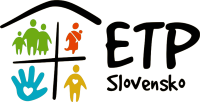Working With Refugees
According to the United Nations (UN), there are currently some 43 million uprooted victims of conflict and persecution worldwide. More than 15 million of them are refugees who have fled their countries. Rooted mainly in the armed conflicts and extreme poverty in Syria, Iraq, Ukraine, Afghanistan, sub-Saharan Africa and Southeast Asia, the current global situation is described by the UN as the worst migration crisis since World War II.
The response of the international community on the current issues surrounding refugees and migrants is mixed. While governments like Turkey, Jordan and Lebanon have not turned their backs on those fleeing war and persecution in Syria, many governments are building fences, patrolling the seas, pushing migrants and asylum seekers back at borders, detaining, deporting them, and denying them their right to apply for asylum. These acts are justified by claiming threats to national security, economic and political stability, and social cohesion. The ability to see refugees as human beings in need of help is obscured by xenophobia and ignorance preventing some people and governments to see that managing the migration flows in a responsible, humane, and dignified manner is beneficial for all of us; inability to provide targeted assistance and help now will generate even more refugees and more crises in the future.
While the response of Slovak citizens to the global refugee challenge is mixed, ETP’s values unquestionably lead us to stand on the side of understanding, compassion, an equitable approach and social inclusion.
As William Lacy Swing, Director General of the International Organization for Migration pointed out, “We need to move the debate about migration from one of common identity to one of common values. We need to help people and governments understand the contribution that migrants can make.”
Since 2009 ETP has been the implementing partner to UNHCR in providing comprehensive social, medical, education and humanitarian services to refugees in need of emergency resettlement in the Evacuation Transit Centre (ETC) in Humenné.
During the six years of the ETC operation, we have managed to build a safe temporary home where refugees are approached with dignity and respect, regardless of their nationality, race or religion. All our activities are conducted in an age, gender and diversity conscious manner. Besides catering for the physical well-being and material needs of the ETC residents, we equally strive to create the environment of trust, in which people can become reconciled with the changes in their lives, heal their wounds and recover from trauma.
Within our philosophy of empowerment, we do not approach our clients as mere victims of their unfavorable circumstances. We strive to provide them with space and tools to find their way, standing at the most difficult and most important crossroads in their lives. We empower them by offering relevant education that is crucial for the future life in their destination country (i.e. Cultural Orientation, English Language, Computer Literacy Courses and many others). We support the clients´ self-expression through Creative Workshops and Art Therapy and provide as many chances for intercultural dialogue as possible.
Even though Humenné is for the ETC clients only a short pause on the way to their destination country, we do everything possible to make their stay in Slovakia worthwhile. We like to see refugees, who arrive at ETC full of apathy and distrust, eventually content, sometimes even reluctant to leave in the end. Even more, we like to see clients once wounded and traumatized leave the ETC stronger, full of new energy, determination and positive expectations about their future.


Pridaj komentár